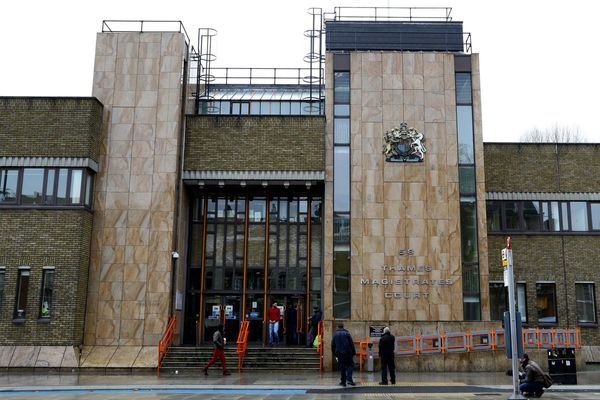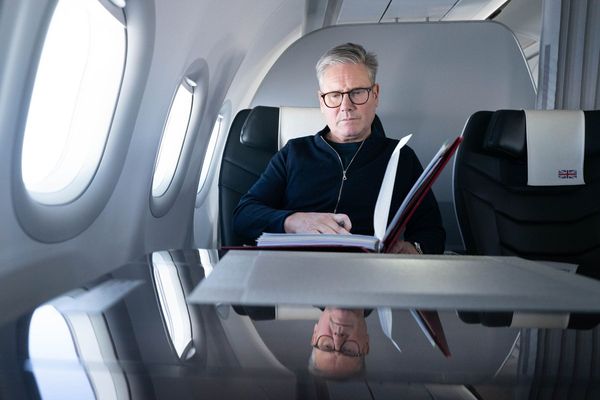
When the Australian Security Intelligence Organisation (ASIO) this week lifted Australia’s national terrorism threat level, you’d be forgiven for thinking it was because of social media: multiple mainstream media outlets emphasised that social media was driving extremism.
The head of ASIO, Mike Burgess, indeed mentioned social media — albeit only once — and referred to “the internet and social media — the primary platform for radicalisation”. But Burgess also said two other things of interest:
Anti-authority beliefs are growing. Trust in institutions is eroding. Provocative, inflammatory behaviours are being normalised … This is really a matter for everyone — community leaders, politicians, the media — watch your words, watch your actions.
ASIO has some form in calling out the inflammatory words of politicians. In 2015, Burgess’ predecessor Duncan Lewis enraged right-wing Liberal MPs when he called on them to stop attacking Muslim Australians, saying such inflammatory rhetoric made ASIO’s job more difficult. And while, this time around, Burgess’ reflections on politicians drew some coverage, curiously, his words about how the media should watch its words didn’t attract any notice from journalists.
Read in combination with his observation that “inflammatory behaviours are being normalised”, Burgess’ suggestion that the media stood with politicians as a factor exacerbating extremism suggests that it’s not just everyone’s favourite whipping child, social media, that is in the frame when it comes to elevating the national threat level.
That raising of the threat level coincided with right-wing violence in the UK in the wake of social media lies about the identity of the perpetrator of the Southport murders of three children. Amid all the blame rightly being levelled at platforms like Twitter for enabling the rapid spread of lies, some pointed out the role of right-wing mainstream media in normalising hatred of migrants. With the Daily Mail — which supported fascism in the 1930s and hasn’t improved since — reaching nearly 700,000 Britons a day through print alone and millions more online, plus another 700,000 for the Murdoch softcore porn title The Sun, mainstream media racism has far greater reach in the UK than all but a handful of the biggest online influencers like Andrew Tate.
In Australia it’s not merely the Murdoch tabloids and Sky News that provide a platform for racism; the notionally “quality” broadsheet The Australian operates as a platform for trolls and undertakes relentless wars against anyone deemed to have stepped out of line, especially if they’re women — witness its depraved and froth-mouthed war against Brittany Higgins — and especially women of colour like Yassmin Abdel-Mageid.
The Seven Network has for years attempted to ape News Corp’s business model of division and white grievance, with little success. But along the way it has repeatedly provided a platform for racists, before its more recent embrace of war criminals and rapists.
News Corp’s repeated attacks on pro-Palestine protesters and its ready conflation of objections to the mass murder of Gazans with antisemitism bring to mind Burgess’ observation that “inflammatory behaviours are being normalised”. The goal of News Corp is to delegitimise any criticism of Israel, to shift the frame of what is acceptable discourse to a point where support for the basic rights of Palestinians and opposition to war crimes is unacceptable.
Nor is News Corp the only perpetrator in this regard; the remarkable upwelling of Islamophobic rhetoric triggered by the move of Labor Senator Fatima Payman to the crossbenches was almost universal across the mainstream media, from the ABC to the Nine newspapers to the Murdoch press. Having created a straw man of Islamic sectarianism, the media proceeded to flay it in the name of social cohesion, in effect insisting that voters who happen to be Muslim are some sort of latent threat to the polity if they strayed from voting for the major political parties. Peter Dutton joined in with one of the most blatantly racist comments in recent political history, claiming that a government with “Muslim candidates from Western Sydney” would “be a disaster”.
If you wanted to develop a playbook to encourage extremism, alienation and the rejection of the existing political system within a group of Australians, it’d be hard to top this. The fundamental message to Australians of Muslim faith is that anything they do is illegitimate — peaceful protest is akin to terrorism, trying to organise politically (because no Christian group has ever tried to organise politically in Australia) is a direct threat to Australian social cohesion, and speaking out against mass murder is antisemitic.
And this message is delivered every day, every week, every month, by media outlets with millions of readers, with far greater reach and — crucially — far greater legitimacy than anything on social media.
What’s the chance our media is pausing for a moment from its self-interested campaign against social media and reflecting on why the head of ASIO has suggested journalists “watch their words”? Slim to none — that assumes, wrongly, that our media is capable of any reflection.
Who’s the biggest inciter of extremism in Australia? Let us know your thoughts by writing to letters@crikey.com.au. Please include your full name to be considered for publication. We reserve the right to edit for length and clarity.







